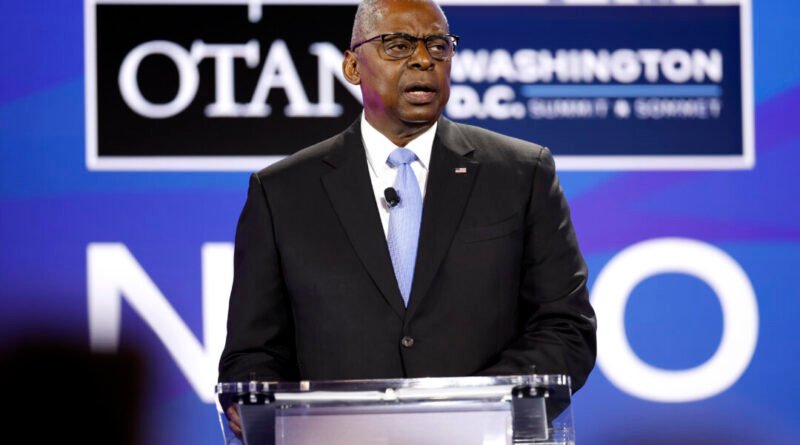Russian officials contact the Pentagon following NATO meeting
The Pentagon emphasized the significance of maintaining open lines of communication, while the Kremlin stated that discussions focused on reducing the risk of escalation.
Following the NATO summit in Washington, Russia’s top military officials initiated a phone call with Secretary of Defense Lloyd Austin.
A spokesperson from the Pentagon stressed the importance of communication, while the Russian Defense Ministry mentioned that the talks aimed to minimize the risk of escalation.
“During the call, the Secretary highlighted the necessity of upholding communication channels amidst Russia’s ongoing conflict with Ukraine,” Ms. Singh informed the press, offering limited additional details. She noted that the Russian side initiated the call and that the previous conversation between Mr. Austin and Mr. Belousov occurred on June 25.
Prior to the June call, the most recent conversation between Mr. Austin and his Russian counterpart dated back to March 2023.
When questioned about the potential frequency of such calls, Ms. Singh replied, “Although there are no announcements regarding future calls, maintaining communication channels is currently crucial, as stated by the Secretary.”
Russia’s Ministry of Defense confirmed initiating the phone call and shared some insights into the topics discussed.
Their previous talk at the end of June, at Mr. Austin’s request, marked their first conversation following Mr. Belousov’s appointment as Russia’s defense minister in May.
In reference to the June 25 call, the Russians revealed that Mr. Belousov cautioned against the consequences of continued U.S. arms supply to Ukraine in the ongoing conflict.
Tensions between the United States and Russia have escalated since Moscow’s military actions in Ukraine in February 2022.
The call occurred shortly after the NATO summit in Washington, where Ukrainian President Volodymyr Zelenskyy urged NATO members to lift restrictions on Ukraine’s ability to target Russian establishments.
He criticized the inability of Ukrainian forces to counterattack missile installations in Russia, which have targeted civilian infrastructure in Ukraine, such as a recent strike on a children’s hospital.
Some NATO countries, including the U.S., had imposed limitations on Ukraine’s utilization of U.S. systems for deep strikes into Russian territory. However, the UK’s approval at the summit suggests a shifting stance, allowing Kyiv to use provided missiles against Russian targets.
The long-range capabilities include SM-6, Tomahawk missiles, and developmental hypersonic weapons.
“The advanced capabilities’ demonstration will signify the U.S.’ commitment to NATO and its contribution to European integrated deterrence,” the joint statement affirmed.
Speaking at the press conference on July 12, Ms. Singh was asked about the U.S.’ stance on lifting restrictions for Ukraine’s deep strikes into Russia.
“Our policy remains unchanged,” she clarified. “We allow cross-border strikes when Russia initiates attacks from their side of the border. As the conflict evolves, our policies adapt accordingly. While ATACMS usage remains under our authorization, we have not sanctioned their deployment for deep strikes within Russia.”
Andrew Thornebrooke contributed to this report.





